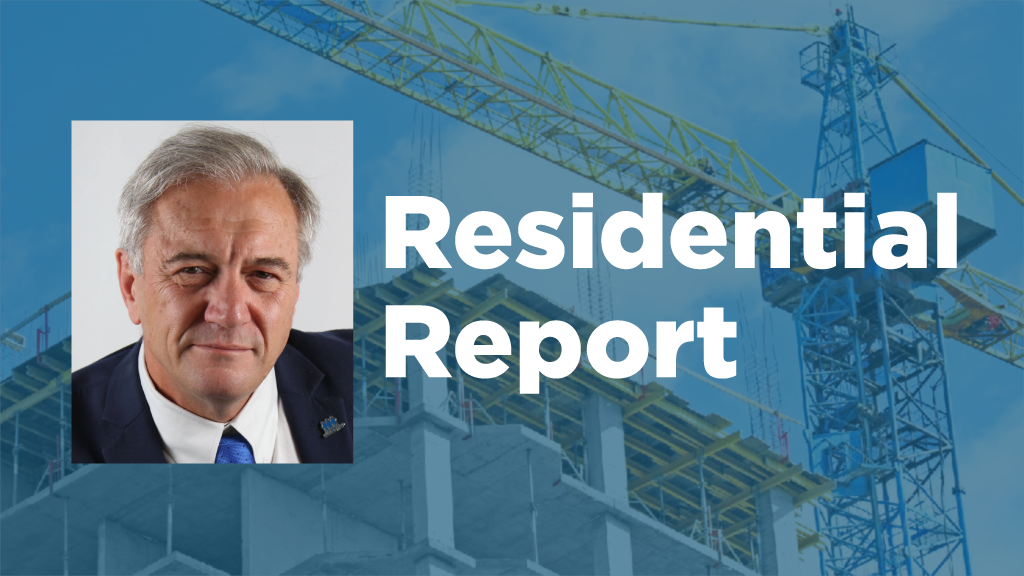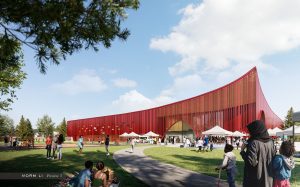First, the good news.
There have been some positives for the housing market as inflation and interest rates appear to be flattening.
Home sales are also edging up slightly as buyers jump into the market.
The bad news, though, is that we remain critically short of new and affordable housing in Ontario and exorbitant government fees, taxes and levies are making it difficult for working families to buy a home.
Presently, we need 1.78 million new homes in Ontario in the next decade to make owning one affordable. With a tidal wave of new immigrants expected to come into Canada over the next several years, financial services firm Desjardins figures the country needs 100,000 more annual housing starts in 2023-24 to keep up with demand. That would mean doubling from the current baseline.
If successful, it would mark the highest level of housing starts in Canadian history – even though starts are already at near historic levels.
Housing, therefore, must be the number one public policy issue. It should not be an ideological or politically partisan matter. Solving the problem requires bold, out-of-the-box, strategic thinking and co-operation from all three levels of government, private developers and industry stakeholders.
However, there seems to be a distinct lack of collective urgency in certain circles about addressing the crisis. Part of the problem, I think, is that many people still fail to grasp the sheer size and scope of what we are up against, how many housing units need to be built and the perils of not doing enough.
The present-day housing crisis, in my opinion, is the product of failed growth planning and exorbitant fees to get projects off the ground. For example, a Canada Mortgage and Housing Corporation report last year indicated government fees were crippling construction. The report found government fees impact the cost of construction in Toronto by as much as 24 per cent.
A more recent report by the Canadian Centre for Economic Analysis pierced the veil of new housing taxes and noted they account for 31 per cent of the total cost of the purchase price of a new home in Ontario, twice the average of other industries and up from about 24 per cent in 2012.
Meanwhile, it takes far too long to get projects underway. While the federal government has set aside billions of dollars through the Rapid Housing Initiative launched in 2020 to quickly build affordable housing across the country, the majority of units approved have not yet been constructed.
In 2021, 4,792 units were approved for funding under the program and another 5,473 were given the green light in 2022. However, as of last November, only 1,449 units had been completed.
Meanwhile, a progress report on the Housing Now initiative in Toronto shows just how difficult it is to build in the city. The program was approved in January 2019 to activate city-owned lands to stimulate the development of affordable rental housing within transit-oriented, mixed-income, mixed-use communities. However, four years later, construction has not yet started on any site.
The provincial government has led the charge to get more homes built faster, but it will take time for the legislative changes to be absorbed by municipalities. Some municipal leaders get it, but many still do not.
At a recent debate sponsored by RESCON and industry partners at George Brown College, the six frontrunners in the City of Toronto mayoral race called on the government to be the builder of housing. However, roughly 90 per cent of housing is built by the private sector, so that doesn’t make sense.
RESCON is proposing mayoral candidates immediately embrace a series of three critical actions that could be taken to speed up residential construction and boost the supply of housing in the city. The ideas came out of a Special Housing Action Committee that was convened by RESCON.
Specifically, we are proposing that as-of-right zoning be allowed along arterial roadways, so that the three-storey limit on minor arterials be expanded to eight, and to 15 storeys on major arterials.
We also want more above-grade parking permitted for new highrise developments instead of forcing developers to go underground, as it will speed-up construction and result in less GHG emissions.
Amendments should also be made to allow building floor plates on tall buildings to exceed 750m² as the current standard limits the optimization of new construction and the size of apartment units.
As we’ve noted in the past, the technology used in the development approvals process needs to be streamlined. Ramming through building code changes in pursuit of net-zero with no apparent thought to how it affects consumer costs also makes no sense.
Without an adequate and affordable supply of housing, our economy will suffer. It is imperative that all levels of government work urgently and effectively and with the industry and stakeholders to get more housing built. It’s a tall order but one that’s critically important to get right, sooner rather than later.
Richard Lyall is president of the Residential Construction Council of Ontario. He has represented the building industry in Ontario since 1991. Contact him at media@rescon.com.










Recent Comments
comments for this post are closed